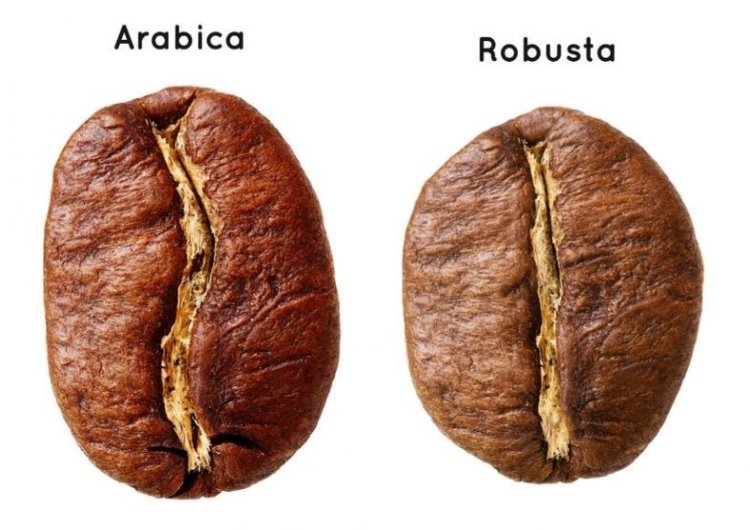Robusta and Arabica coffee: what are the differences?

Arabica and Robusta are not a type of coffee, but species of the same plant - coffee from the Madder family. They differ in the appearance of the grains , ripening characteristics, chemical composition, which cannot but affect the taste, aroma, strength of the drink prepared from them.
What are Arabica and Robusta?
Arabica (Arabian coffee, lat. Cofféa arábica) is a species of the genus Coffee of the tribe Coffee of the Madder family. The most widespread and cultivated species.
Robusta coffee (Congolese coffee, lat. Coffea canephora, syn. Coffea robusta) is a plant species from the genus Coffee of the Madder family. Robusta is more unpretentious and fruitful than Arabica and is cheaper to produce. Types and varieties of coffee
Arabica and Robusta are not a type of coffee, but species of the same plant - coffee from the Madder family. They differ in the appearance of the grains , ripening characteristics, chemical composition, which cannot but affect the taste, aroma, strength of the drink prepared from them.
Arabica grows in the highlands, at an altitude of 600-2000 meters above sea level. Loves an average temperature of about 16 degrees and moderate humidity.The first harvest of a young plant is considered the best; the older the tree, the less valuable its fruits.
Robusta, in comparison with Arabica, is much more unpretentious, does not require special care and special conditions, and is practically not susceptible to disease. Feels good in plateaus, plains, easily tolerates heat and lack of moisture.
In the world coffee turnover, Arabica accounts for 70%, robusta - 20%. There are many more varieties of coffee than types. They are obtained from pure Arabica or mixed with robusta in different proportions. Robusta in its pure form is practically not used, only to create blends.
7 main differences between Arabica and Robusta
Origin Arabica was discovered in Ethiopia in the 9th century.
Robusta appeared in the Congo in the 18th century. Growing conditions Arabica grows at an altitude of 600-2000 above sea level. Robusta grows on the plains Plant appearance Arabica is a tree, robusta is a shrub.
Grain shape Robusta grains are rounder, Arabica beans are more oval and larger. Taste In blends, Arabica is responsible for the sourness of the drink.
Robusta grains with pronounced bitterness. Caffeine content Robusta contains 2 times more caffeine than Arabica. Worldwide production More than 70% of the world's coffee production comes from arabica, 20% from robusta.
Appearance of Robusta beans from Arabica
Arabica grains are large, elongated, characterized by a dense, fleshy structure. Arabica is first wet processed, then fermented, several more processing stages are carried out, dried and sent to factories. Robusta grains are smaller than Arabica and have a more rounded shape. This type of coffee does not need pre-treatment, it is immediately subjected to thermal effects.

Comments
No comment at this time!
Leave your comment